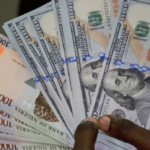•N1, 170 to US$1 monumental tragedy — PSN President
By Chioma Obinna
It is not the best of times to be sick in Nigeria or to require any form of medical treatment as a result of a disease infection or accident trauma. This is because the continuous free fall of the naira value over the last few years has worsened the already weakened healthcare delivery services in the country.
From the pharmaceutical sector to the healthcare delivery services, Nigeria’s treatment of one ailment or the other has been rendered helpless. Hospitals are also not spared.
Apart from escalating the cost of medicines in Nigeria, its adverse effects on the population leave much to be desired.
The Nigerian pharmaceutical industry is facing significant challenges due to rising drug costs, forcing importers and local manufacturers out of business. Many medicines for common ailments are no longer available, and few are accessible to most Nigerians.
Pharmaceutical companies like GSK are leaving the country, and essential medicines are being hoarded by wholesalers and retailers. The depreciating value of the naira to the dollar, coupled with sky-high inflation, has led to a sharp increase in the cost of importation of Active Pharmaceutical Ingredients and APIs, and the importation and manufacturing of finished products at the consumer level.
Currently, Nigeria is rated by the World Health Organisation, WHO, as one of the eight countries in the world with exceptionally exorbitant drug prices.
As you’re reading this article, US$1 is exchanging at the parallel market at N1, 200, as of 24th October 2023, the exchange rate between the naira and the US dollar is about N800, according to the Central Bank of Nigeria, CBN.
Vanguard investigations reveal that the cost of pharmaceutical drugs in Nigeria has increased by over 100 per cent, causing patients to return home without their prescriptions.
Prices for paracetamol, chemotherapeutic treatments, antimalarials, antibiotics, antihistamines, antihypertensives, antidiabetics, and other medications have risen by 200 to 800 percent. This issue is undermining local medicine makers, who rely on imported raw materials. Nigeria, which relies on imports for 70 percent of its medicine needs, may face the worst if immediate action is not taken.
Stakeholders are concerned that the rapid disappearance of pharmaceuticals could lead to a major scarcity of drugs and medicines for disease treatment. Additionally, the cost of medications in Nigeria continues to rise hourly due to the $1 per second increase in the dollar exchange rate.
A Vanguard investigation found that Augmentin, a GSK product for the treatment of infection and pneumonia, is no longer available at a fixed price. The price is now determined by the buyer. Ampiclox, another GSK product that was formerly priced between N500 and N1,000 per sachet, is now priced between N10,000 and N20,000 per sachet, depending on location.
If you can find the medicine to buy, it costs between N26,500 and N45,000 depending on where you live. The 1-gram sachet costs N45,000 in Okota and Isolo, whereas it costs N40,000 elsewhere.
Another life-saving drug – the Ventolin inhaler -that is utilized in treating asthma attacks is now out of supply. A few months ago, the Ventolin inhaler was sold for N1, 600.
Findings revealed that the scarcity of Ventolin inhalers has also pushed the price of another brand of inhaler, Seretide, through the roof. It was formerly sold for N6, 000, but now goes for N40, 000.
Many Nigerians can no longer afford regular paracetamol; a packet of paracetamol that cost N50 a year ago now costs N200 to N300, depending on the location and brand.
An indeterminate number of patients are abandoning their treatments and adopting alternative methods like traditional healers and prayer houses. Online pharmaceutical marketers exploit the scarcity of drugs to flood the market with substandard and counterfeit medications, impacting patients like pregnant women, asthma, cancer, malaria, pneumonia, hypertension, and diabetes.
For Agnes Onyero, who was on treatment for malaria, it is not just that the drugs are expensive; her main worry is that she is not seeing the results. “I have been treating malaria for three months now after a short relief it will come back again. I have decided that after I finish this set of drugs, I will try herbs,” she lamented regretfully.
While Agnes is battling with resistance to malaria drugs apparently due to substandard or fake medicines, another Nigerian, Adebayo Ojo cannot even afford to buy any drug for treatment. The 35 year-old now patronises herb sellers popularly known as Alagbo who hawk concoctions in his area.
Every morning, Adebayo purchases a cup of the mixture for N200, which, according to him, was formerly sold for N100.
“I did not just decide to be taking herbs but the situation of things forced me to do that. I have no steady job and just manage what I get from the little one I do. I was at the pharmacy close to my house and I asked for a malaria drug I was told it is now N2,500. The amount is higher than my daily earnings, so I left it, “ he said.
Agnes and Adebayo are not alone. There are millions of Nigerians in the same boat with them. Some are now building their fate in their faith.
Dollar rate determines the price of drugs in Nigeria
The Chief Executive Officer of HealthPeak Pharmacy, Lagos, Pharm. Azubuike Amakase adduced that several factors contributed to the high cost of drugs presently in Nigeria, but the major factor is forex. In his view, most drugs are imported and indigenous pharmaceutical manufacturers also rely on imported raw materials.
Importers are not helping matters as they continue to sell old stock at unreasonable prices, believing that repurchasing the value of the naira in dollars will not fetch them the same quantity of drugs as when they sell to manufacturers in India, China, Europe, or anywhere else.
“Now every morning before they give out products they will ask for the exchange rate and use it to compute the price for the drugs they sell for that day, that is why some days you get the price of a product in the morning by evening time the price will change, so it is affecting the cost of the drugs and other medications.
“The one that affected me emotionally was a day an asthma patient came in here and the commonest drug that we use when there is an asthma crisis is Ventolin inhaler and other brands. But it happens that Ventolin inhaler is nowhere to be found in most pharmacies in Nigeria. That was attributed to the fact that the company that manufactures this product, GSK, has left the country but the few stocks that we still have are in the hands of the wholesalers who are hoarding and creating an artificial scarcity.
“Inhaler that was sold at a maximum of N1600 in the past has no price now. Some wholesalers will tell you they sell at N8,000 for one while some sell as high as N25,000. For some people that use Seretide another inhaler for asthma, Seretide used to be like N6,000 but today if you ever see one, you will hear prices like N40,000.
“So, the day the woman came in here, she was gasping for breath, she needed an inhaler to get resuscitated but we did not have one. What we did for her with my experience in clinical pharmacy was to get her some tablets to relieve her but those tablets could not give her immediate relief as should have done by inhaler but by the grace of God she came out of the crisis.”
But her case is one out of the 100s of cases.
Why drug shortage may persist
Azubuike who envisaged a long-term drug shortage supply in Nigeria, said most importers of pharmaceutical products are no longer bringing them in because of challenges at the Ports.
“Customs duties are getting higher and higher. Before now, Customs used to calculate duties based on an exchange rate of about N500 to $1, but today, they are using an exchange rate of over N700 to $1 to calculate the duties.
“When you come out of the duty problem, you also face the problem of haulage, and logistics, taking these products from the wharf to the warehouses. These trucks that convey these products from the wharf to the warehouse also run on diesel and the price of diesel is high, it starts from N700 to over N1,000. There are so many factors that are pushing the prices of drugs in Nigeria.”
Impact on pharmacy sales
Azubuike noted that pharmacies are experiencing low sales due to high costs and the harsh economy, with many good-selling pharmacies now idle due to people’s inability to afford medications.
“Some patients will go to the hospital and bring a prescription but when they come to the pharmacy after you bring out all the drugs they were given in the prescription list, sometimes most of them will abandon the drugs and just walk away without even saying a word, some will now request that you give them something cheaper, some will come with a budget and when they get here the money they budgeted for their drugs cannot even get half of what is in their prescription. A lot of people are dying.
“Instead of buying drugs that are being prescribed for them, people now go to prayer houses while some will go to traditional healers and alagbo on the streets in the name of herbs. And these things as we know affect our organs, especially the liver. If you go to some tertiary hospitals you will see the results of this act.
“People are coming down with kidney problems. Go to nephrology clinics, patients are there. This is major because people are not buying the right drugs. Hospitals like LASUTH and LUTH are battling with these complications. There is a need to address this problem.”
He said drugs used for the treatment of common ailments such as malaria, typhoid fever, infections pneumonia, and respiratory tract infections among others are majorly affected.
“The cheapest malaria products once sold at N250 is now N500, while those sold at N500 then, now start from N800, and the ones sold from N1,000 then are now N2,500 upwards. This is over a 100 per cent increase.
“The commonest ciprofloxacin that you can get before now as cheap as N400 for one pack is selling as high as N800. For higher brands, some are selling for N2,500. Then you go to drugs like Augmentin, the problem is that you can hardly see it now. It is a GSK brand and if you can see it, it has no price meaning that the price is determined by the seller and the person seeking to have those drugs.
“It can go as high as N45,000 for the one gram, then about N40,000 for the 625 if you ever see it. The hike in Augmentin has affected the prices of other Amoxicillin, some that were sold for N1,500 in the past, are now over N3,000, and some sold for N2,000 are now sold for N6,000.
“Brands like Amplicox which is one of the brands people are conversant with, sold for N1000 per sachet and is now N10,000 per sachet, It is also a GSK product popularly known as Beecham Ampiclox. Some may be kind enough to sell it for N9000, and a person who needs this Ampicloix will need two sachets to complete treatment. This means that the person must be ready to cough out N20,000 to get a drug he or she will use for five days, going by the right dosage.”
Azubuike emphasized the need for local drug production in the country and urged the government to intervene to address the uncontrollable fall in naira value by ensuring access to Fore for the importing and producing of pharmaceutical products.
Doctors, pharmacists react
President of the Pharmaceutical Society of Nigeria, Prof Cyril Usifoh, criticised the current exchange rate of N1,170 to US$1, describing it as a significant tragedy. He warned that the 200 to 250 percent differential in drug prices currently being seen could get worse.
Usifoh lamented that Nigeria’s National Drug Policies (NDP) over the years had not achieved their goals and objectives. He argued that Nigeria imports 70 percent of essential drugs, with India and China producing a significant portion of the country’s consumption, noting that the NDP 2005 advocated for 70 percent of essential drugs to be manufactured locally.
Recommending a way out of the problem, he said the manufacturing of essential drugs and APIs in Nigeria has become crucial in the quest for medicine security and to attain a major boost in the contributions of the pharma sector to the GDP in the national interest.
“Achieving the status of an African hub in pharmaceuticals must become a cardinal objective of the Tinubu administration as we mobilize for the growth of the real sector of the economy. One major reason for the skyrocketing prices of drugs is the depreciation of the naira in the Fore market.”
He said: “President Bola Tinubu needs two key portfolios in the pharma sector to bring prosperity to bare and these are the office of an adviser, Pharmaceuticals and a Chairman of a Presidential committee on drugs distribution reform to redress the ills we have highlighted for productivity.”
In his views, a Superintendent Pharmacist, Engraced Pharmacy, Lagos Pharm Jonah Okotie traced the high cost of medicines to multiple factors of high exchange rate as a result of the poor economy and repatriation of funds.
For him, in the last 20 years, the exchange rate has been depreciating consistently at an astronomical rate.
He said some pharmaceutical companies have folded up because of the astronomical increases because, at the time they imported the products, the value of the naira was less than what it was when the payment was due, which threw them into debt.
Okotie emphasized the challenge of repatriating funds for forex trading in the international market, stating that the availability of funds is crucial for accessing essential medicines. If funds are not available, citizens may be excluded from the list of beneficiaries, denying them essential medicines.
“The economy is shrinking and the purchasing power of the citizens is reducing. The incentive for multinationals to come in is dwindling. I remember sometime back in the 1990s when our economy was faced with a similar experience, the companies then left saying that not only was the cost of doing business in Africa high, but the volume of business after conversion from local currencies to the dollar was not enough to take them home.”
Okotie is insisting that there has to be some intervention kind of funds to mitigate the challenges. “Unfortunately, corruption and wickedness on the part of some of the managers may not let the citizens benefit from it. Take for instance, the Drug Revolving Fund, DRF, scheme, it has become a conduit pipe for those saddled with managing it. Suppliers are not paid as at when due to give credibility to the system. Those who are supposed to be checkers are themselves the suppliers. Where is the check and balance? If things go right, we must start with sincerity, accountability, responsibility and interest to see that we improve. We may not have all the resources but judicious and responsible use of our lean resources will guarantee maximum benefit.”
In a chat, the Medical Director of St Raphael Hospitals, Lagos, Dr Anthony Omolola who confirmed that in practical terms, drugs and other hospital consumables have gone over 100 per cent, decried that energy consumption has worsened the already bad situation.
He said Hospital general maintenance is hitting the roof, and patients’ capacity to pay hospital ills has gone way down.
“Unfortunately, Health Maintenance Organisations, HMOs are not making business easy for hospitals because they operate tariffs lower than the cost of production in the hospitals. The patients are not smiling and the same with the hospitals.”
On his part, the Chairman, the Ekiti State branch of the Nigerian Medical Association, NMA, Dr. Babatunde Rosiji, said the development has taken medical supplies beyond the reach of average citizens.
Rosiji posited that if the state of affairs in the country continues unchecked, the inevitable might be on the horizon.
“As we all know and can bear witness to, our dear country is passing through a very difficult time and we as citizens bear the brunt. The times are unprecedented! Patients are finding it difficult to present early to the hospitals for economic reasons. “The exchange rate is making the cost of drugs and medical supplies beyond the reach of the average citizens. Patients on medications for chronic illnesses such as hypertension and diabetes are finding it difficult to access an uninterrupted supply of drugs.
“While health insurance is beginning to take root, the price of drugs in the insurance scheme is out of touch with current realities. If this continues unchecked, your guess is as good as mine.”
The post Depreciating Naira value pushes medical care beyond Nigerians appeared first on Vanguard News.





